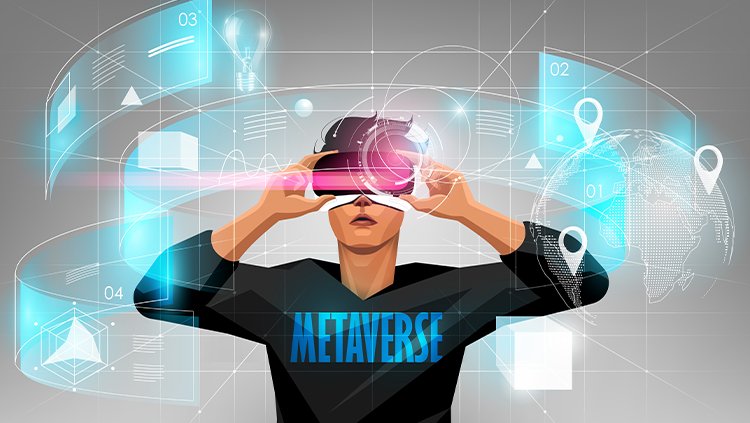Web3 being made possible by decentralization?

A result of Mark Zuckerberg's ambitious metaverse technologies, Meta's Reality Laboratories, reported a $4.28 billion operating loss for the fourth quarter and a $13.72 billion total loss for 2022. Despite this, Zuckerberg continues to hold the view that the company's future lies in the metaverse.
Some corporate leaders are dubious about the long-term viability of the metaverse, while others appear to be equally optimistic about its potential.
Although there are differing views, market indications are generally optimistic, particularly for India, which has a sizably big population of young people who have access to digital technology. According to a Deloitte analysis, the economic impact of the metaverse in India by 2034 is predicted to be between 1.3 and 2.4% of GDP, or between $79 and 148 billion annually.
A fully immersive metaverse with seamless real-time rendering for millions of concurrent users, according to the same paper, is still in the future.
While many companies have entered the space, including Maruti Suzuki, Mondelez, Starbucks, HUL, and Tata's Tanishq, others, like Godrej Consumers Products Ltd, have not yet done so because scaling would be difficult given the company's extensive product line and diverse customer base, a top official of the company said.
Another issue that many people have is the web's decentralization. Web3 is an unregulated area with no rules from the ministry of consumer affairs or any other organization.
In his opinion, Web 3.0 will continue to advance and be more widely used, giving rise to new applications and use cases like decentralized finance, digital collectibles, and virtual reality marketplaces, according to Niraj Ruparel, Head Of Mobile and Emerging Tech at GroupM India and Emerging Tech Lead at WPP India. The growth and viability of the web3 and metaverse ecosystem, meanwhile, will also depend on how well those issues—such as scalability, user experience, and legal barriers—are handled.
Recently, Ruparel presented many brand innovations created by the WPP team in the metaverse area at the Indian Society of Advertisers in Mumbai. These innovations included deep fakes of celebrity endorsers, which have the ability to completely alter the marketing environment.
Between Web2 and Web3
Big IT corporations that control and harvest user data for surveillance and advertising run Web2.
Web3, in contrast, is built on blockchain technology and operates on a decentralized basis, which broadly refers to the internet as being owned by its creators, users, and builders. On web3, the data is owned by the stakeholders.
"At scale, innovation and commerce are being driven by blockchain, cryptocurrencies, and NFTs. The decentralized concept is likely to accelerate adoption of Web3 given growing privacy concerns, according to digital chiefs of media agencies.
The difficulties
According to recent instructions from the Indian government, the metaverse and deep fake section will be covered under the Information Technology Regulations 2021. Social media sites have been ordered by the authorities to take down "all deep phony photos" within "24 hours."
Ruparel responded, "The government and ASCI must bring some guidelines in this area," in response to the question of how brands can navigate while the rules of the game are still unclear. He pointed out that creating meta clones of celebrities currently involves a laborious process and multiple levels of approvals.
Additionally, the previous year did bring a number of problems across web3 to light, from the rise of "NFT" schemes to the suspected misappropriation of consumer funds.
Concerns exist around data privacy as well. Although web3 enables users the ability to express themselves in a safe manner via avatars and even gives them authority over their data, tech experts point out that there are problems over data security and privacy of user data.
Despite this, corporate executives are upbeat about web3's future. According to a report by the US-based technology research and consulting company Gartner, over 30% of all firms will have goods and services prepared for the metaverse by 2026.
A four-fold governance stack (data privacy, privacy literacy, equality, and inclusion) was proposed by Sanjiv Mehta, CEO and MD of Hindustan Unilever, last year to aid in the development of the metaverse for good.

 Sumit Rawat
Sumit Rawat 










